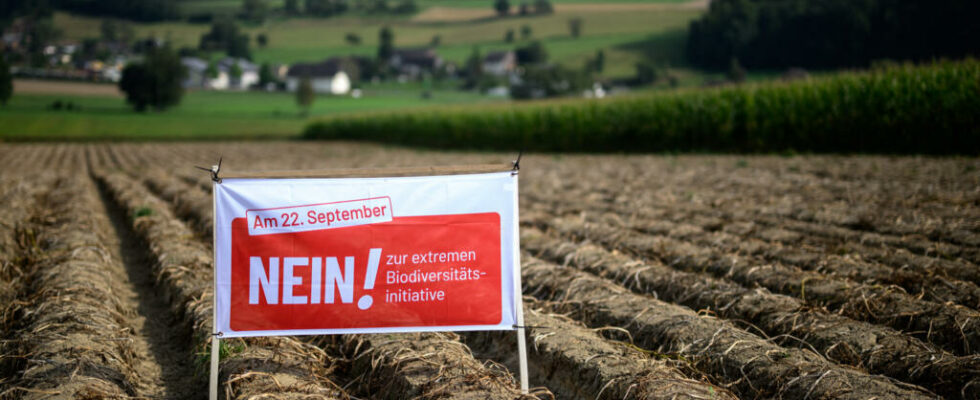This Sunday, September 22, Swiss voters clearly rejected an initiative aimed at demanding better protection of biodiversity as well as a proposal to reform pension financing, according to the first projections published at the close of polling stations.
4 mins
The projections published on September 22nd at the close of the Swiss polling stations are not a surprise: the polls published before the vote already suggested a victory for the “no” on these two texts, biodiversity and pension financing reform. This was confirmed by the first projections from the gfs.bern polling institute as soon as the polling stations closed at noon (local time).
Supported by several nature and landscape protection organisations, including Pro Natura, BirdLife and Patrimoine Suisse, the biodiversity initiative called for more resources and areas to better protect biodiversity and nature, even outside protected areas, as well as better protection of the landscape and built heritage. This text only received 37% of votes, according to the institute. According to partial results published by the federal government in real time on a dedicated application, the text was rejected by nearly 63% of voters at 10:30 UT.
” There Swiss has one of the highest rates of threatened species and habitats of any European OECD country “, explained to AFP one of the directors of Pro Natura, Sarah Pearson Perret, citing a report from the European Environment Agency. This study, published in 2020, shows that in Switzerland the percentage of protected areas in relation to the national territory is the lowest of all European countries. But, for the Federal Council but also the radical right party UDC – the country’s leading party, one of whose historical components is the agricultural world – as well as for the PLR and Centre parties, as well as for economic actors, the initiative went too far.
In Switzerland, a third of species are threatened
According to statistics published in 2023 by the Federal Office for the Environment (FOEN), 13.4% of Swiss territory is dedicated to biodiversity conservation. In December 2022, countries agreed at COP15 in Montreal on a roadmap to protect ” by 2030, at least 30% » of the planet’s lands and seas. According to the OFEB, the state of biodiversity in Switzerland is unsatisfactory: half of the natural environments and a third of the species are threatened. Aquatic environments and marshes are among the most endangered.
Accents of EuropePesticides: Swiss researchers look at children’s exposure
The Confederation currently spends around 600 million Swiss francs (638 million euros) per year to support species diversity. The majority of these funds are paid to farmers so that they dedicate certain areas of their farms to biodiversity, for example in the form of pastures, floral fallows, hedges, etc.
This Sunday, September 22, Swiss citizens also clearly rejected the pension financing reform, wanted by the government according to the first projections of gfs.bern, which gives only a little more than 32% of the votes in its favor. The “no” won with 67% according to the federal application, based on a partial count at 10:30 UT. On this “vote”, the left and the unions thus won a clear victory over a project that they did not hesitate to describe as betrayal and a scam.
Financing difficulties?
In Switzerland, pension financing is based on three “pillars” : state pension provision, occupational pension provision and private pension provision. Only the first two are compulsory. According to the government, occupational pension provision, financed by company contributions, is under pressure due to the low returns on the financial markets: the assets invested there do not generate sufficient interest to finance the payment of retirement pensions.
In addition, life expectancy is increasing and pensions have to be paid out for longer. The reform provided, among other things, that employees and employers would pay higher employee contributions to the pension fund.
Also readSwiss vote in favour of paying a thirteenth month of pension to retirees
